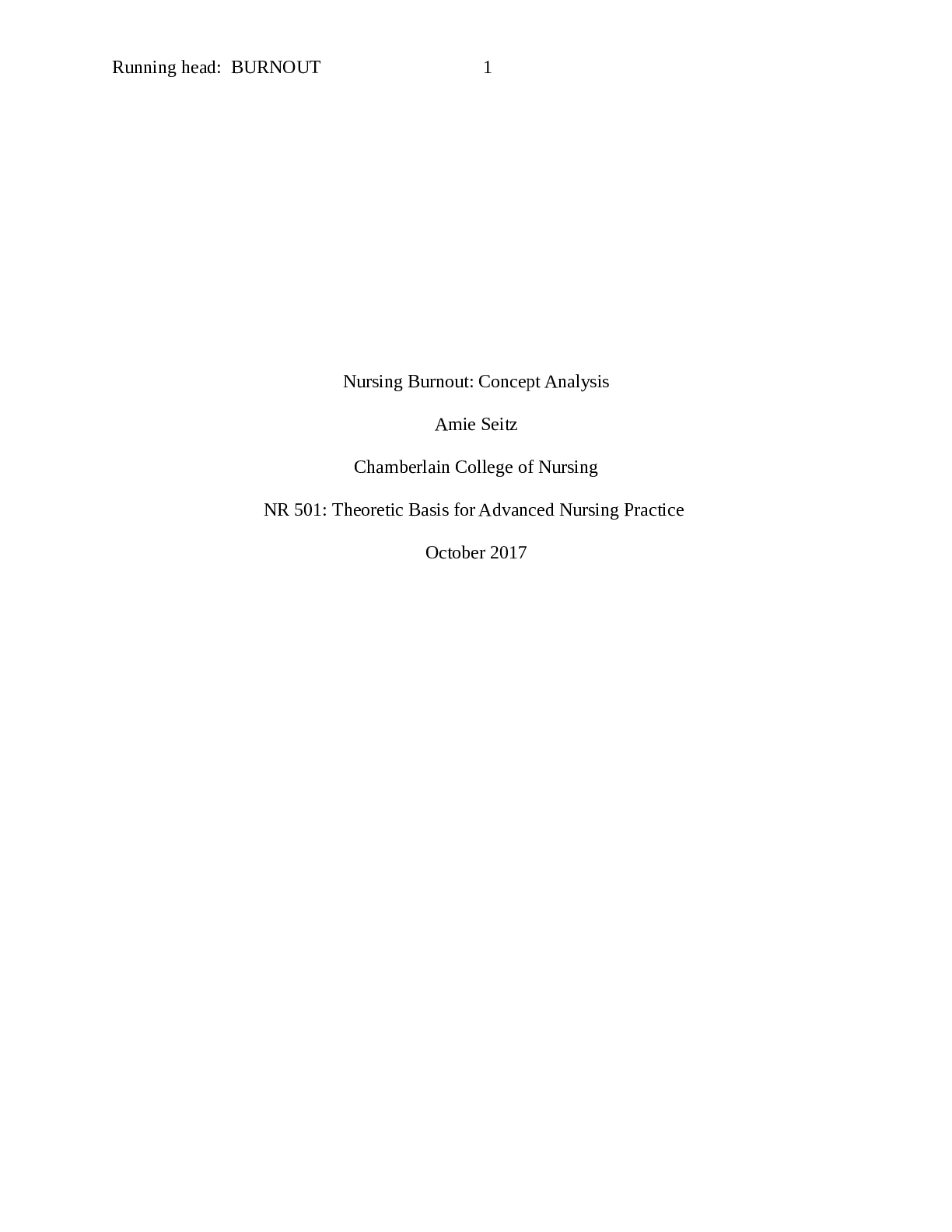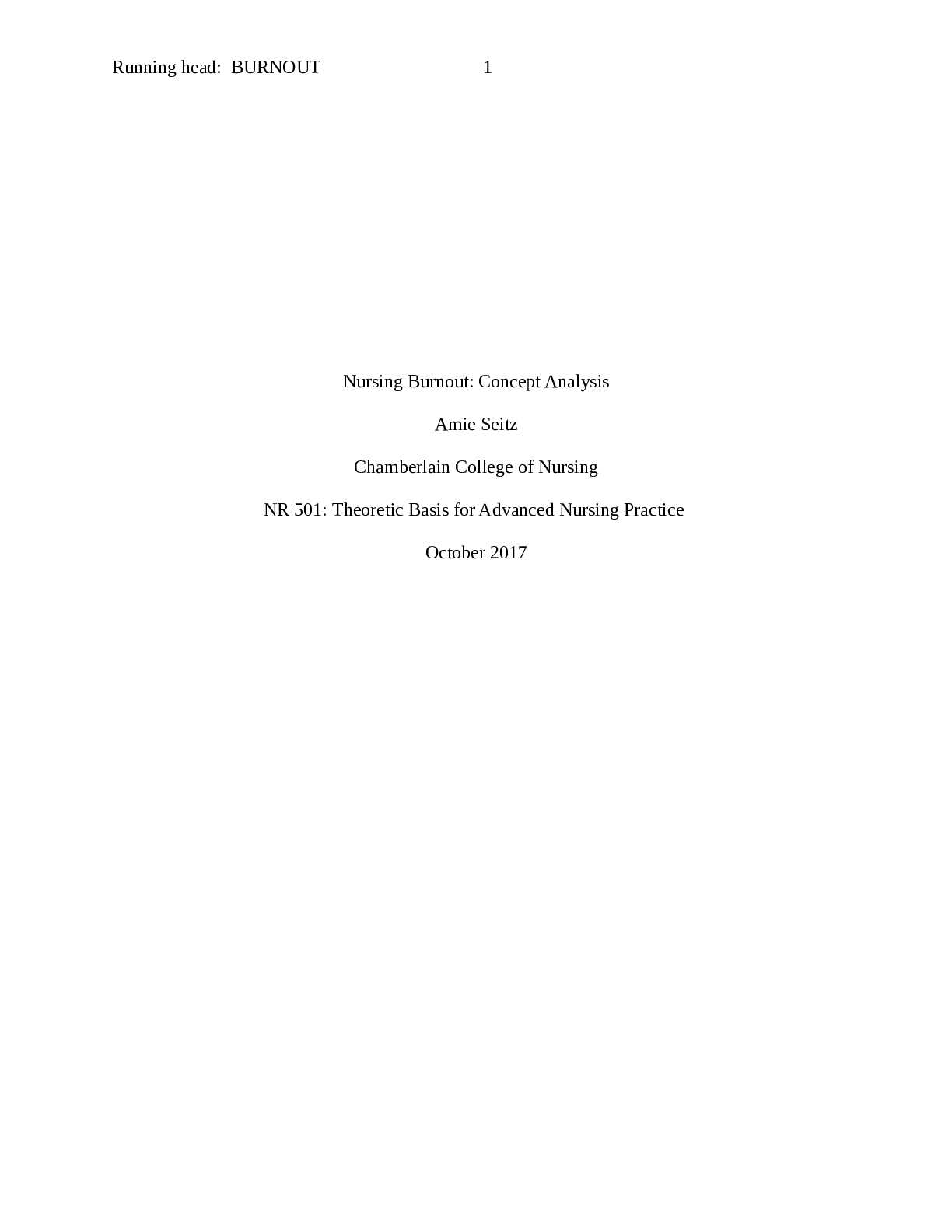Nursing Burnout: Concept Analysis
Course
Project Management
Subject
Chemistry
Category
Report
Pages
11
Uploaded By
ATIPROS
Preview 4 out of 11 Pages


Download all 11 pages for $ 8.50
Reviews (0)
$8.50
